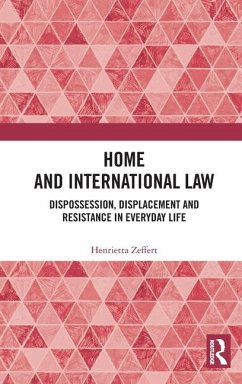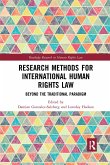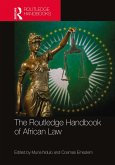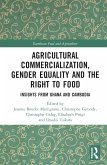This book is about home and international law. More specifically, it is about the profound, and frequently devastating, transformations of home that are happening almost everywhere in the world today and what international law has to do with them.
Through three stories of home - the desert home, the lake home and the city home - this book traces how the everyday operations of international law shape the material, affective and imaginative experience of home. It argues that international law's 'homemaking work' is characterised by acts of domination, practices of resistance and the production of unhomely spaces. However, the book also considers whether and how the liberatory potential of international law could be unlocked through the metaphor of home. This book draws from fieldwork conducted by the author in Palestine, Cambodia and the United Kingdom. It takes a global socio-legal approach to home and international law, informed by feminist political theory, feminist geography, home studies and contemporary critical approaches to international law. It is the first academic work to examine the relationship between home and international law.
This book's global socio-legal approach to home and international law will be of interest to those teaching and studying in international law, socio-legal studies, legal pluralism and legal geography.
Through three stories of home - the desert home, the lake home and the city home - this book traces how the everyday operations of international law shape the material, affective and imaginative experience of home. It argues that international law's 'homemaking work' is characterised by acts of domination, practices of resistance and the production of unhomely spaces. However, the book also considers whether and how the liberatory potential of international law could be unlocked through the metaphor of home. This book draws from fieldwork conducted by the author in Palestine, Cambodia and the United Kingdom. It takes a global socio-legal approach to home and international law, informed by feminist political theory, feminist geography, home studies and contemporary critical approaches to international law. It is the first academic work to examine the relationship between home and international law.
This book's global socio-legal approach to home and international law will be of interest to those teaching and studying in international law, socio-legal studies, legal pluralism and legal geography.








